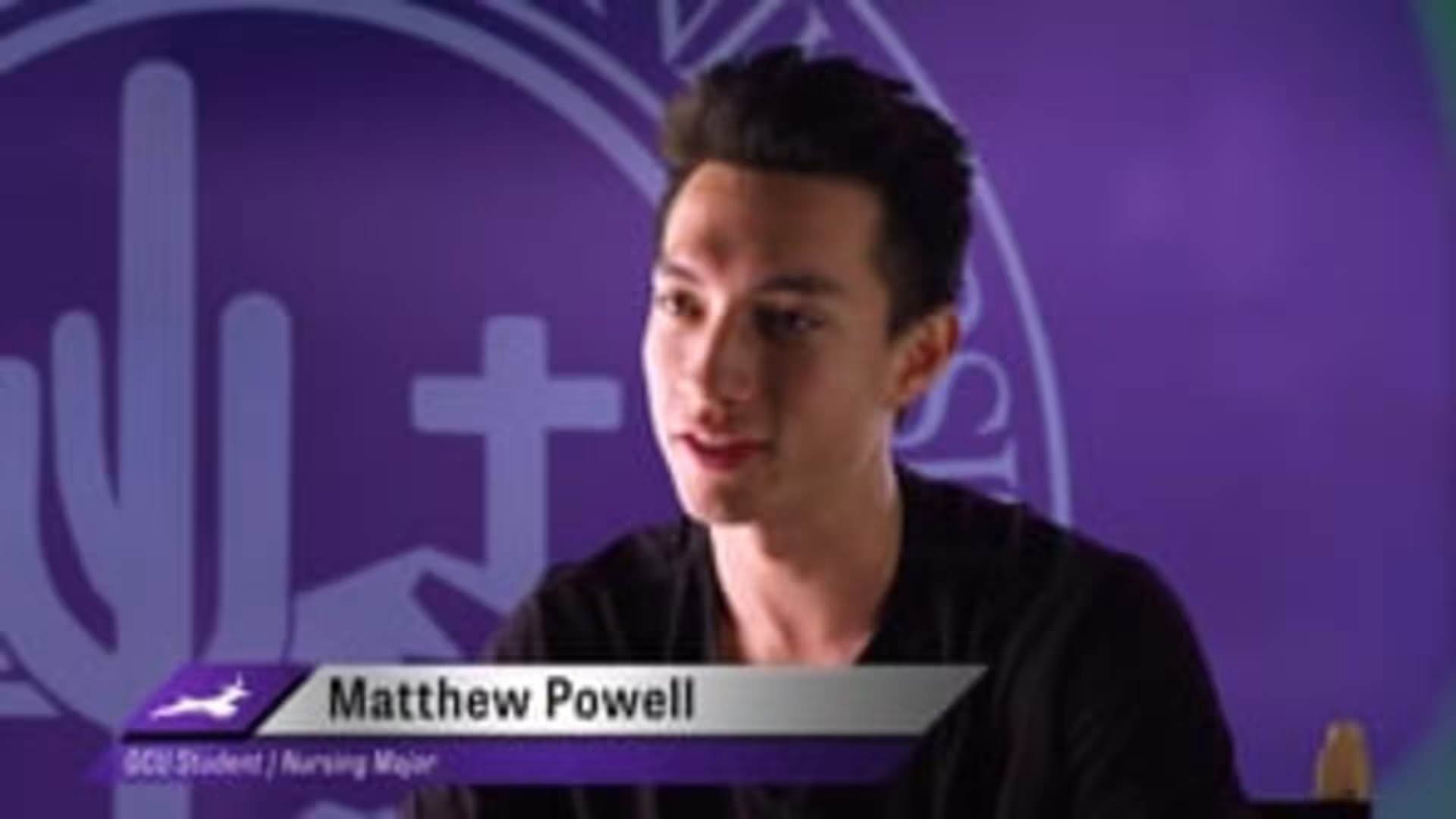
Online Nursing Programs
Pursue Your Nursing Education Online
Whether you’re interested in starting a nursing career in which you can make a positive difference in your community, or you’re already a nurse who would like to further your education and seek to position yourself for potential career advancement, Grand Canyon University has a program suited to your needs and goals. With a comprehensive curriculum and nursing instructors who are dedicated to supporting your progress, our online(See disclaimer 1) nursing programs are designed to empower you to achieve your professional goals.

GCU was ranked by Niche.com as the #15 best college for nursing in America for 2024(See disclaimer 2)
Benefits of Pursuing an Online Nursing Degree Program
Personal fulfillment, a feeling of being called to serve others and opportunities to position yourself for potential career advancement are all common reasons to pursue a nursing career. Whatever your reasons are, at GCU, you can enjoy opportunities to develop a firm foundation of nursing competencies online.(See disclaimer 1) Choose from a variety of undergraduate and graduate nursing programs. Our coursework can prepare for a healthcare career while enjoying the flexibility that online learning offers to fit your schedule.
Explore Online Nursing Degree Programs at GCU
GCU is pleased to offer distance learning opportunities in nursing education for both undergraduate and graduate students.(See disclaimer 1) Here, you’ll find a wide range of remote nursing degree programs designed for learners at every stage of their career and academic journey and across a range of nursing specialties.
Accreditation
Admission Requirements

Undergraduate Online Nursing Programs
GCU’s accredited undergraduate nursing coursework allows you to take a close look at core topics in informatics, community health, healthcare management and professional nursing practice.

Graduate E-Learning Nursing Programs
Continue your education and examine advanced nursing skills by enrolling in one of GCU’s online Master of Science in Nursing (MSN) programs.(See disclaimer 1) These graduate distance learning programs can help you position yourself to potentially grow, serve and lead at higher levels in the nursing field in a variety of environments.
Browse Online Nursing Degree Programs
20 Matching Degrees
Postgraduate Nursing Certificate Programs
If you have already completed your Master of Science in Nursing but wish to further your education, consider earning a specialized certificate with one of GCU's online Post-Master of Science in Nursing certificate programs.(See disclaimer 1) Our nursing certificates focus on applicable skills to help you prepare to work with diverse populations across the lifespan or to mentor and teach the next generation of nurses.
Online Doctorate in Nursing Programs

The doctoral degree in nursing represents the highest level of academic achievement in the field. Position yourself to pursue potential career advancement while enjoying opportunities to sharpen your research skills and clinical competencies at GCU online.(See disclaimer 1)
The Doctor of Nursing Practice (DNP) is designed for practice-focused leaders who are interested in translating current research into innovative solutions that can help achieve positive outcomes. The DNP can help you meet your personal and professional goals while preparing to position yourself for a potential career as a nurse executive or educator.
Online Nursing Degree FAQs
If you’re considering remote nursing degree programs, read through our frequently asked questions to learn more about GCU’s online programs and discover the best program for you.(See disclaimer 1)
What is the fastest route to obtaining a nursing degree online?
How does online nursing school work?
Can I complete online nursing courses without clinicals(See disclaimer 1)?
What if my bachelor's degree is not in nursing?
Can I complete the nursing degree fully online?
How long does a nursing program take to complete?
How do on-campus and online nursing degree programs compare?
What Can You Do With an Online Nursing Degree?

If you choose to pursue an online graduate degree to further your career qualifications, you may position yourself to potentially pursue higher-level positions as a nurse executive or nurse educator.(See disclaimer 5,6 )
With an undergraduate degree in nursing, you may pursue licensure as an RN and apply for employment across a wide range of nursing specialties, including:(See disclaimer 7)
Pediatric nursing
Ambulatory care nursing
Cardiac care
Emergency room nursing
Geriatrics
Intensive care
Medical surgical nursing
Obstetrics
Dedicated to Keeping College Affordable
GCU strives to provide aspiring or current healthcare workers with the opportunity to earn or advance their education in an affordable manner.
GCU is committed to providing a quality, affordable education. To view our tuition and course rates for online students, visit our Online and Evening Tuition page and see how you can afford your education.
Financial aid is available for GCU students through FAFSA(See disclaimer ®) (Free Application for Federal Student Aid). Learn more about financial assistance through FAFSA.
GCU offers a variety of scholarships and grants for our students across different degree levels to help keep your education affordable.
Nursing Program Resources
GCU is committed to supporting the academic progress of our online students. Learn more about the resources available for the online learning community of the College of Nursing and Health Care Professions.

Start or further your nursing education in a convenient online format at GCU.(See disclaimer 1) Develop your nursing knowledge today!
-
Clinical, practicum and immersion hours completed locally.
- Niche.com. (n.d.). 2024 Best College for Nursing in America. Retrieved March 20, 2024.
- The entire program requires 120 credits.
- Secondary Applicants must transfer a minimum of 60 of the required 123 credits or have completed a baccalaureate degree which includes nine prerequisite courses/labs and 10 general education courses prior to starting the core nursing courses, which can be completed in as few as 16 months. Direct Entry Applicants that do not transfer 60 credits but meet the minimum requirements can complete these credits through GCU prior to starting the core nursing courses. Depending on the state where student has enrolled or intends to complete the program, student may require additional courses. This may include, but is not limited to, additional general education courses, courses in the major, clinical courses, or a different course sequence. See the University Policy Handbook.
- NurseJournal. (2023, Oct. 10). Nurse Executive Career Description. Retrieved March 20, 2024.
- NurseJournal. (2024, Feb. 26). How To Become a Nurse Educator. Retrieved March 20, 2024.
- Johnson & Johnson. (n.d.). Nursing Specialties. Retrieved March 20, 2024.









